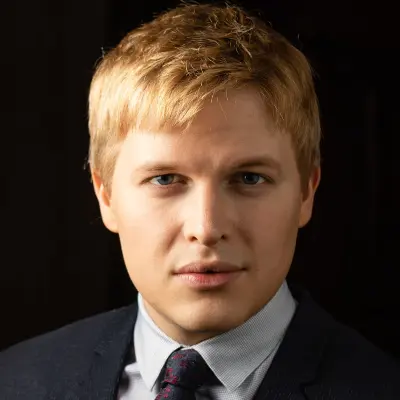Ronan Farrow's book depicts a horrific NBC News power structure
-

In Catch and Kill, Farrow recounts turning to the esteemed Tom Brokaw for advice on dealing with NBC News bosses trying to stonewall his Harvey Weinstein investigation. "I have to disclose, Ronan,” Brokaw tells him, “that Harvey Weinstein is a friend.” It turns out that Farrow's book shows how the powerful men at the top of NBC News -- from NBC News chairman Andy Lack to NBC News president Noah Oppenheim to MSNBC president Phil Griffin -- have something in common: "They’re all friends, it feels, as you read this frightening volume, and it seems as though they all have bad histories with women, sex, and power, patterns they seem to have cultivated within the institutions that made them powerful and brought them together to begin with," says Rebecca Traister, adding: "Around every airless corner is another troubling figure — most of them powerful men, some women, some merely weak lackeys, others double agents, all of them working in tandem to protect their power and each other." Traister points out that two years after #MeToo, there are still networks of powerful people in charge of telling the story of power and politics in America. "Yes, as Farrow points out, NBC is also filled with great, hard-working, ethical journalists, the vast majority of whom have never made jovial cracks about slipping presidential candidates rape pills," she says. "But the people who are in charge, at the top, actually shaping the coverage and thus the American understanding of the world, are the ones who went to strip clubs and late-night Harvard parties together, who followed undergraduate girls, who patted each other on the back as they got awards and covered up each other’s affairs and harassment and assault of junior co-workers: These are the guys who run one of the nation’s news networks."
ALSO:
- Why Matt Lauer's "consensual sex" defense is flawed: "To those who were swayed by Lauer’s protestations of innocence: Think about how rare it is for a rapist to say 'I raped someone,'" says Monica Hesse. "Or, think about this: Think about how it could have been possible for Lauer to genuinely believe that he, one of the most powerful big shots at NBC, was simply initiating spontaneous sex, while on a work trip, with a drunk junior colleague, who by her own account had consumed six shots of vodka at the bar with Lauer and others. And think about how — even if you don’t believe her claims of being raped — that was still a very, very bad idea on his part. A fireable offense, even. I’m not saying that Lauer and Nevils’s interactions were simple....It’s messy. It’s unbelievably messy, as these situations often are. None of us will ever know with 100 percent certainty what happened in that hotel room. But by crying 'consensual sex,' Matt Lauer is asking us to make it simple again. He’s telling us: Don’t have difficult conversations about consent or workplace power imbalances or victim psychology or the horrible moment when one person has simply given up on saying 'no,' so the other person assumes it’s now a 'yes.' He’s saying, let’s just have a conversation about vindictive women and victimized men. She wanted it all — blame her."
- Lauer's right to defend himself is an important part of #MeToo: "Matt Lauer is speaking out in his own defense, something that many men have been too afraid to do for fear of being called sexist or misogynistic or other, more indelicate terms that have entered the lexicon thanks to a certain occupant of the White House," says Christine M. Flowers, adding: "We have to find that middle point between the two pendulum extremes of 'excusing all men' and 'believing all women.'”
TOPICS: Ronan Farrow, MSNBC, NBC, Andy Lack, Brooke Nevils, Matt Lauer, Noah Oppenheim, Phil Griffin, Tom Brokaw, NBC News, Sexual Misconduct
More Ronan Farrow on Primetimer:- TV Today: Only Murders in the Building Returns For a Star-Packed Sophomore Season
- Ronan Farrow's Catch and Kill: The Podcast Tapes is watchable because the story is so compelling
- The Diminishing Returns of HBO's Catch & Kill: The Podcast Tapes
- TV Today: Ronan Farrow's Catch and Kill Gets a Companion Docuseries on HBO
